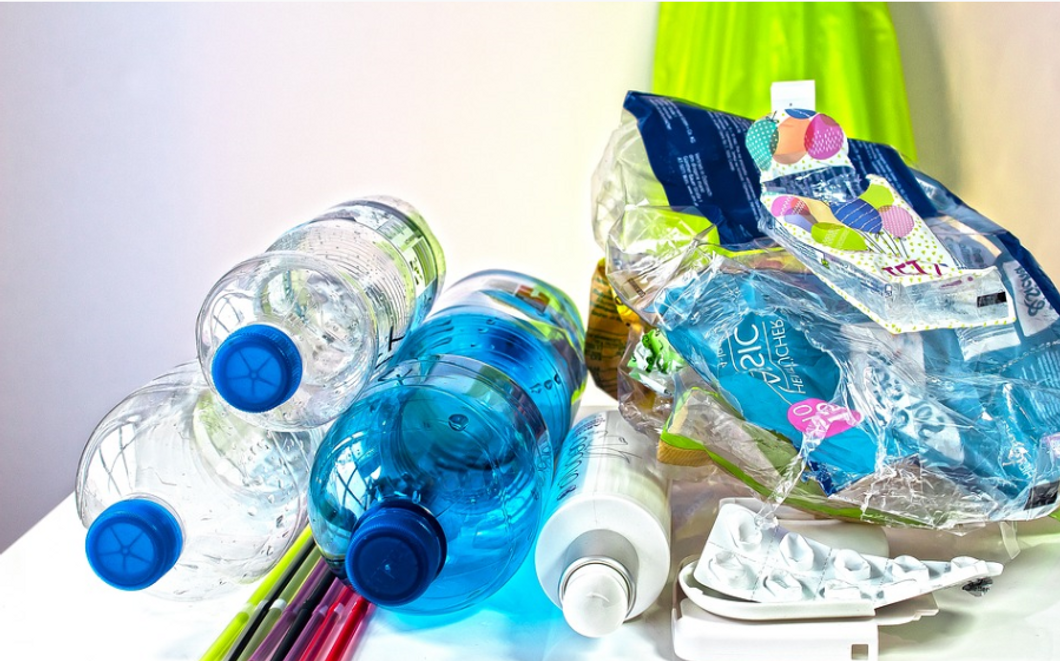At this point, it has become pretty apparent that the world has a massive plastic pollution problem. Whether it is the Pacific garbage patch or litter on the street or plastic accumulating in landfills, plastic waste is ubiquitous. Most people will quickly jump to conclusions of bans and regulation. They are usually not an easy to pass as Plastic product manufacturers like Dart Containers (produces the majority of single-use rigid plastic, foam, and waxed paper cups and containers) and Multi-Pak(one of the largest manufacturers of plastic film in the US) in addition to some retailers will lobby heavily against them.
The biggest question becomes is it possible to make the shift away from single-use plastic without bans. There are just too many things that would need to be banned. There will be too many unsatisfied customers and stakeholders to push into action. Here are some behavioral, perceptual and process tweaks that could make a considerable difference in disposable plastic use.
1. Demand that cashiers stop automatically giving out bags for small purchases
While bags are necessary for weekly grocery trips, they are not essential when buying a single item or even two items. Far too often, cashiers automatically give people a bag for a single bottle of juice or a single sandwich or a single book. Small purchases can usually be carried comfortably without a shopping bag or placed inside of a handbag or backpack. Store managers should tell all cashiers to ask the customer if they need a bag. It's far easier for customers to say no to a question than it is for them to stop a cashier who bags a purchase without asking.
2. Create an impact tracking app that gives discounts
Some stores like Shoprite and Starbucks offer discounts for bringing reusable bags or reusable cups, respectively. But how many customers bring them? Not very many. People are more inclined to continue doing something if they can track their progress, whether it is Fit Bit watches, physical activity trackers on phones, or the free pizza meter at Papa John's. If there were an app where customers could track the number of cups or bags you saved, the environmental impact, and give them a coupon after scanning a QR code at the checkout line, maybe more shoppers would bring reusable bags and cups.
3. Swap the plastic spoon and fork for a spork and ditch the knife
I began collecting the plastic utensils from takeout that I don't use, and I ended up with a lot of knives. Most disposable utensil packets contain a fork, spoon, knife, and napkin. For pretty much type of food, you need a napkin, fork, and spoon. The knife, however, is only utilized when cutting bread or big chunks of food. If the meal contains small sized pieces of food and no bread, then a knife isn't needed. Sporks combine a spoon and fork, reducing plastic waste. Manufacturers of disposable cutlery should create more packets that only contain sporks and napkins and sell the plastic knives separately.
4. Innovate reusable containers to make them more convenient
Reusable containers have inherently been less convenient than disposable ones. Reusable containers would become more mainstream if they could be made easier to carry. In recent times, foldable shopping bags and collapsible travel cups and water bottles have been developed to solve the convenience issue.
5. Ask companies to incorporate the How2Recycle labeling system on their packaging
Figuring out if a package is recyclable and how to recycle it correctly can be challenging. There are countless different shapes and types of plastic. The numbers in the chasing arrows can also be misleading. While waste haulers usually accept plastic with a number 2 (HDPE), plastic bags and film with a two stamped on it are not accepted due to their different physical properties that make them hard for recycling plants to capture without damaging equipment. The How2Recycle labeling system adds a standardized method of identifying recyclable packaging and how it should be recycled.
6. Positively incentivize "bring-your-own-mug"
Try creating a raffle to incentivize participants to bring a reusable mug or thermos to a block party, fundraising event or other large social gatherings. Make sure you advertise it well in advance so that people are aware. For a small business, perhaps offer a punch card so that for every four-five times a customer brings a reusable bag or mug, he or she will receive a 25% to 40% discount on a purchase
















